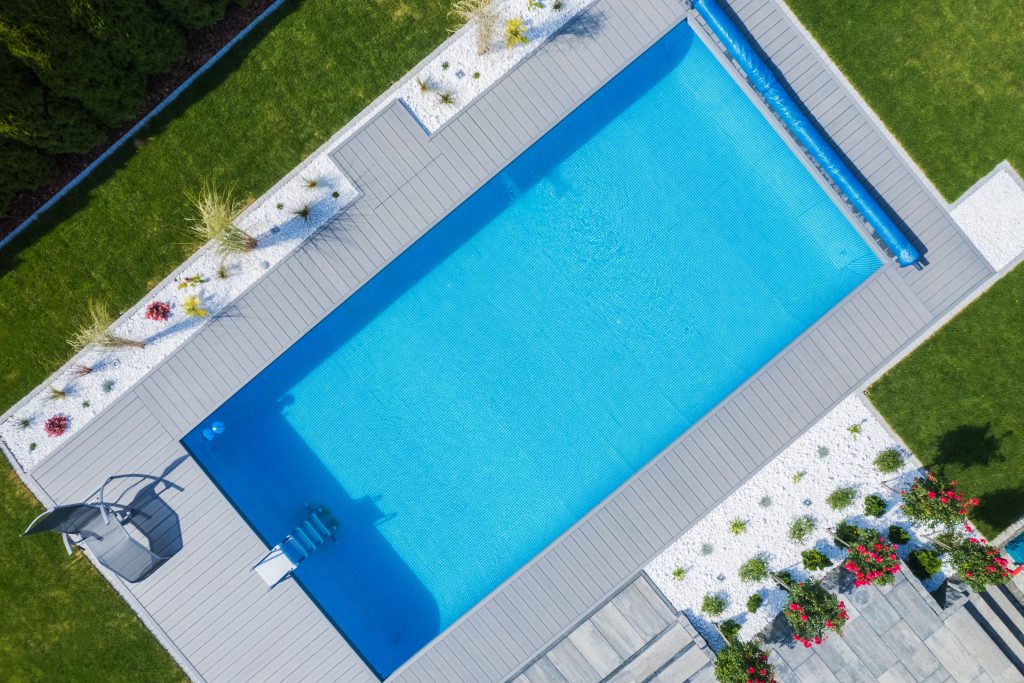Fiberglass Pool vs. Concrete: A Comprehensive Comparison for Florida Homeowners
Fiberglass Pool vs. Concrete: A Comprehensive Comparison for Florida Homeowners
When choosing a pool for your Florida home, one of the most critical decisions you’ll face is whether to go with a fiberglass pool or a concrete pool. Each type has distinct advantages and disadvantages, making it essential to understand the key differences before making a choice. Below, we’ll explore these two pool types in-depth, so you can make an informed decision for your backyard oasis.
Fiberglass Pools: The Modern Choice for Pool Installations

Fiberglass pools have been gaining popularity due to their smooth surface and relatively quick installation process. Unlike concrete pools, fiberglass pools come pre-made and are installed in one piece. This can save a significant amount of time, with most installations completed in just a few weeks. Florida homeowners often favor this option for its low maintenance and energy efficiency. Pool Installation FAQs will give you an idea of what to expect during the installation.
Fiberglass pools also feature a smooth, non-porous surface, making them more resistant to algae growth. This means you’ll spend less time and money on pool cleaning. In Florida’s warm climate, this is a significant advantage, as pools can quickly accumulate debris and algae. Eco Finish Interior Pool Coating is one example of an advanced coating for pools that help in keeping maintenance low.
Concrete Pools: The Customizable, Durable Option
On the other hand, concrete pools offer more customization options. Whether you want a unique shape, size, or depth, concrete pools can be tailored to fit your exact preferences. Florida residents who are interested in creating a one-of-a-kind pool often choose concrete because of its flexibility in design. Plungie Max Concrete Pool is a perfect example of a customizable concrete option that offers robust durability for long-term use.
Concrete pools can also be constructed with a wide variety of finishes, from plaster to pebble or tiles. This flexibility can be appealing for homeowners who are looking to match their pool design to the surrounding landscape. However, it’s important to note that concrete pools take longer to install, typically requiring several months of construction. Plungie Arena Round Pool is another customizable choice that some homeowners find appealing.

Comparing Costs: Fiberglass vs. Concrete Pools in Florida
Cost is one of the most significant factors to consider when deciding between fiberglass and concrete pools. Fiberglass pools tend to have a higher upfront cost, but they may save money in the long run due to their lower maintenance requirements. Pool Installation Payment options can help homeowners plan their budget accordingly.
Concrete pools, while generally less expensive to install initially, can incur higher long-term maintenance costs. The porous surface of concrete pools requires more frequent cleaning and resurfacing, which can add to your overall expenses. For homeowners in Florida who value long-term efficiency and lower maintenance, a fiberglass pool may be the better financial choice. Plungie Studio Concrete Pool is one such model that might appeal to those seeking a concrete pool with an aesthetic edge.
Maintenance and Durability: What’s Best for Your Florida Pool?
Maintenance is an essential consideration for pool owners in Florida. Fiberglass pools require significantly less maintenance than concrete pools. This is because their non-porous surface doesn’t allow algae to cling to it, and the smooth surface prevents dirt from sticking easily. Homeowners looking for a pool that is easy to care for might opt for fiberglass. Pool Refinish Services may be needed for concrete pools over time, adding to the maintenance.
Concrete pools, while durable, often require more regular attention. The rougher surface can lead to more wear and tear over time, meaning you’ll need to resurface the pool every 10 to 15 years. Plungie Max Concrete Pool is an example of a concrete pool designed to withstand the test of time, but it will still need proper care to keep its surface smooth and algae-free.
The Florida Climate: Which Pool Type is Better?
Florida’s tropical climate brings a mix of intense heat and frequent rain, which can affect the longevity and upkeep of your pool. Fiberglass pools are particularly well-suited to Florida’s weather because of their resistance to algae and lower heat absorption, which can help maintain a comfortable pool temperature. Eco Finish Interior Pool Coating provides added protection against the sun’s harsh rays.
Concrete pools can still perform well in Florida’s climate, but they may require more frequent cleaning and resurfacing, especially in areas with high levels of humidity and rainfall. If you’re in a location that sees a lot of storms or intense heat, fiberglass pools may have the edge in terms of durability and ease of maintenance. Plungie Studio Concrete Pool may be a good option for those who want the durability of concrete, with added climate resilience features.
Conclusion: Which Pool is Right for You?
Both fiberglass and concrete pools have their strengths and weaknesses. Fiberglass pools are ideal for homeowners who want a quick, low-maintenance option with an energy-efficient design. Florida residents who are looking for a hassle-free pool experience often choose fiberglass due to its superior maintenance features. On the other hand, concrete pools are perfect for those who want ultimate customization and are willing to invest time and money in maintenance. Swimming Pool resources can also provide more detailed insights into pool types.
Ultimately, the best choice will depend on your preferences, budget, and the level of maintenance you’re willing to commit to. No matter which pool type you select, make sure to work with an experienced installer who understands the specific needs of Florida homeowners.
Pool Equipment will help you find the necessary equipment to keep your pool in top shape, whether you choose fiberglass or concrete. if you want to search about this topic more you can visit this page of the spruce page.